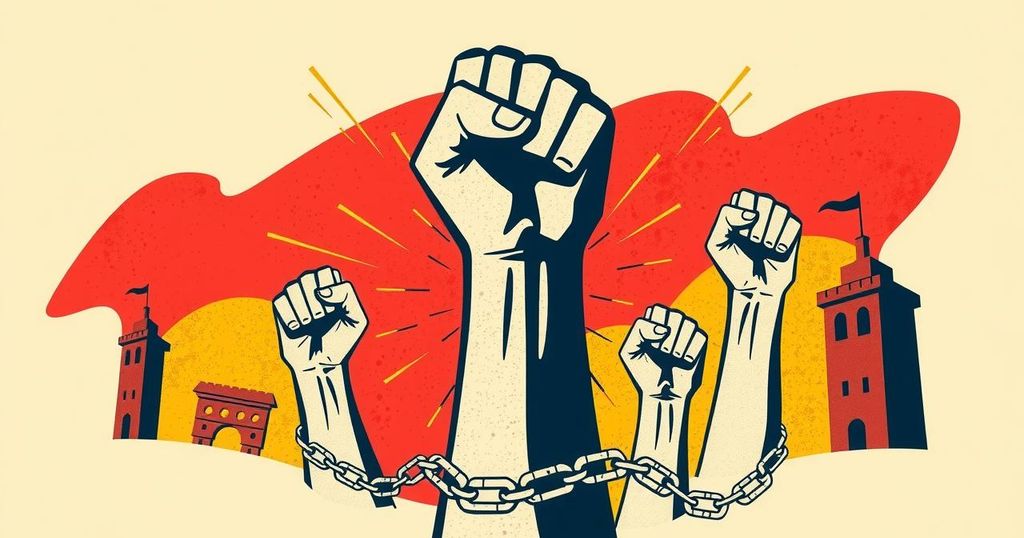Peruvian rights groups are alarmed over a new bill that prohibits NGOs from legally challenging the state on human rights abuses. The legislation classifies assisting or financing such lawsuits as a serious offense and tightens scrutiny of foreign funding sources. Prominent NGOs have condemned this as detrimental to democracy, while Congress defends it as a measure to ensure aid is used properly.
Peruvian human rights organizations are raising serious concerns regarding legislation recently passed by Congress, which prohibits non-governmental organizations (NGOs) from initiating legal action against the state pertaining to human rights violations. This bill, adopted on Wednesday by a Congress dominated by right-wing parties, categorizes actions by NGOs to advise, assist, or finance such lawsuits as a “serious offence” and implements stricter regulations regarding foreign funding sources for these organizations.
The government is now faced with a two-week deadline to either enforce the bill or propose amendments to Congress. Promsex, an NGO that advocates for women’s sexual and reproductive rights, condemned the bill, terming it the “anti-NGO law” and asserting that it constitutes a significant setback for democracy and human rights within Peru. The organization stated, “We reject this law, which hinders access to justice and perpetuates impunity.”
Furthermore, the Press and Society Institute, which focuses on media rights, likened the legislation to measures enacted by authoritarian regimes throughout Latin America. Peru’s Congress appears intent on intensifying oversight over NGOs, which have faced criticism from conservative factions due to their involvement in litigation against the state regarding alleged human rights violations.
One notable case currently before the Inter-American Court for Human Rights involves Celia Ramos, a woman who died following forced sterilization procedures implemented during a state campaign in the 1990s. Congress President Eduardo Salhuana justified the legislation, arguing that it aims to guarantee that international development aid is utilized for its intended purpose rather than being diverted by NGOs to pursue actions against the state.
Civil society advocates contend that the bill is unconstitutional as it effectively grants the government veto power over the operations of these organizations. It is noteworthy that Peru already has an established state agency dedicated to overseeing NGO activities and ensuring transparency in their funding utilization.
The recent adoption of the legislation in Peru has sparked significant backlash from human rights groups, who argue it undermines democracy and obstructs justice for victims of state abuses. With the government’s proposed timeline for potential enactment, civil society advocates must urgently press for accountability and uphold constitutional rights in the face of increasing governmental oversight over non-governmental organizations.
Original Source: www.batimes.com.ar




